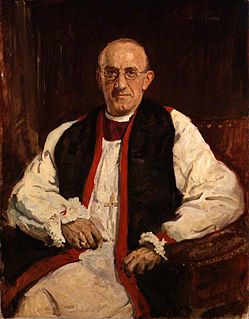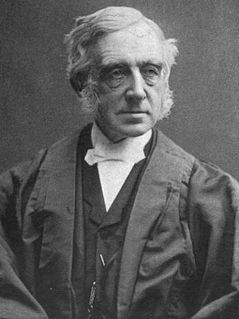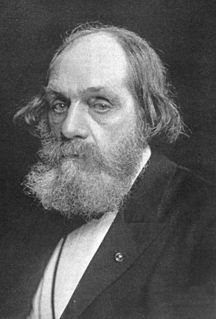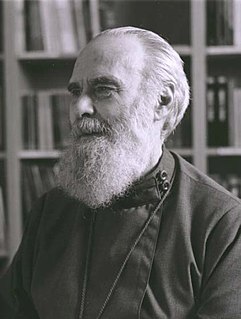A Quote by C. S. Lewis
The search for a "suitable" church makes the man a critic where God wants him to be a pupil. What he wants from the layman in church is an attitude which may, indeed, be critical in the sense of rejecting what is false or unhelpful but which is wholly uncritical in the sense that it does not appraise- does not waste time in thinking about what it rejects, but lays itself open in uncommenting, humble receptivity to any nourishment that is going.
Related Quotes
If he loves, he wants to make a relationship out of it immediately! He wants to get married. He wants to create a certain conditioning. He wants to make it a contract. Or he enters a church, or he enters a political party, or he enters into any club and he wants to be structured, he wants to know where he stands in the hierarchy, in what relationship. He wants to have an identity - that 'I am this.' He does not want to remain uncertain. And life is uncertain. Only death is certain.
Any church which forsakes the regular and uniform for the periodical and spasmodic service of God, is doomed to decay; any church which relies for its spiritual strength and growth entirely upon seasons of "revival," will very soon have no genuine revivals to rely on. Our holy God will not conform His blessings to man's moods and moral caprice. If a church is declining, it may require a "revival" to restore it; but what need was there of its declining?
The Head and the body are Christ wholly and entirely. The Head is the only begotten Son of God, the body is His Church; the bridegroom and the bride, two in one flesh. All who dissent from the Scriptures concerning Christ, although they may be found in all places in which the Church is found, are not in the Church; and again all those who agree with the Scriptures concerning the Head, and do not communicate in the unity of the Church, are not in the Church.
The Church does not invent sins but recognizes the will of God and has to declare it. Of course, the great thing.. is that upon the Church, which has to declare the will of God in its full magnitude, in its unconditional rigor, so that man should know his true measure, is bestowed as a gift, at the same time, the task of forgiving.
The church itself has got to go outside of its own borders and carry the gospel to ev'ry creature, or it is no church of Christ; and any mutual improvement club which thinks that by reading its Shakspearo, or by acting its pretty tableaux, or by having. this or that little reading from Spenser and from Chaucer, it is going to lift itself up into any higher order of culture or life, is wholly mistaken, unless as an essential part of its duty, it goes out into the world, finds those that are falling down, and lifts them up to the majesty of freemen, who are sons of God.
Baptism does not profit a man outside unity with the Church ... For many heretics also possess this Sacrament but not the fruits of salvation ... The benefits which flow from Baptism are necessarily fruits which belong to the true Church alone. Children Baptized in other communions cease to be members of the Church when, after reaching the age of reason, they make formal profession of heresy, as, for example, by receiving communion in a non-Catholic Church.
I felt that the Church was the Church of the poor,... but at the same time, I felt that it did not set its face against a social order which made so much charity in the present sense of the word necessary. I felt that charity was a word to choke over. Who wanted charity? And it was not just human pride but a strong sense of man's dignity and worth, and what was due to him in justice, that made me resent, rather than feel pround of so mighty a sum total of Catholic institutions.
A church that does not exist to reclaim heathenism, to fight evil, to destroy error, to put down falsehood, a church that does not exist to take the side of the poor, to denounce injustice and to hold up righteousness, is a church that has no right to be. Not for yourself, O church, do you exist, any more than Christ existed for Himself.
It seems to me, and I am personally convinced, that the Church must never speak from a position of strength. [These are shocking words.] It ought not to be one of the forces influencing this or that state. The Church ought to be, if you will, just as powerless as God himself, which does not coerce but which calls and unveils the beauty and the truth of things without imposing them. As soon as the Church begins to exercise power, it loses its most profound characteristic which is divine love [i.e.] the understanding of those it is called to save and not to smash.
[Buddhism and Christianity] are in one sense parallel and equal; as a mound and a hollow, as a valley and a hill. There is a sense in which that sublime despair is the only alternative to that divine audacity. It is even true that the truly spiritual and intellectual man sees it as sort of dilemma; a very hard and terrible choice. There is little else on earth that can compare with these for completeness. And he who does not climb the mountain of Christ does indeed fall into the abyss of Buddha.



































